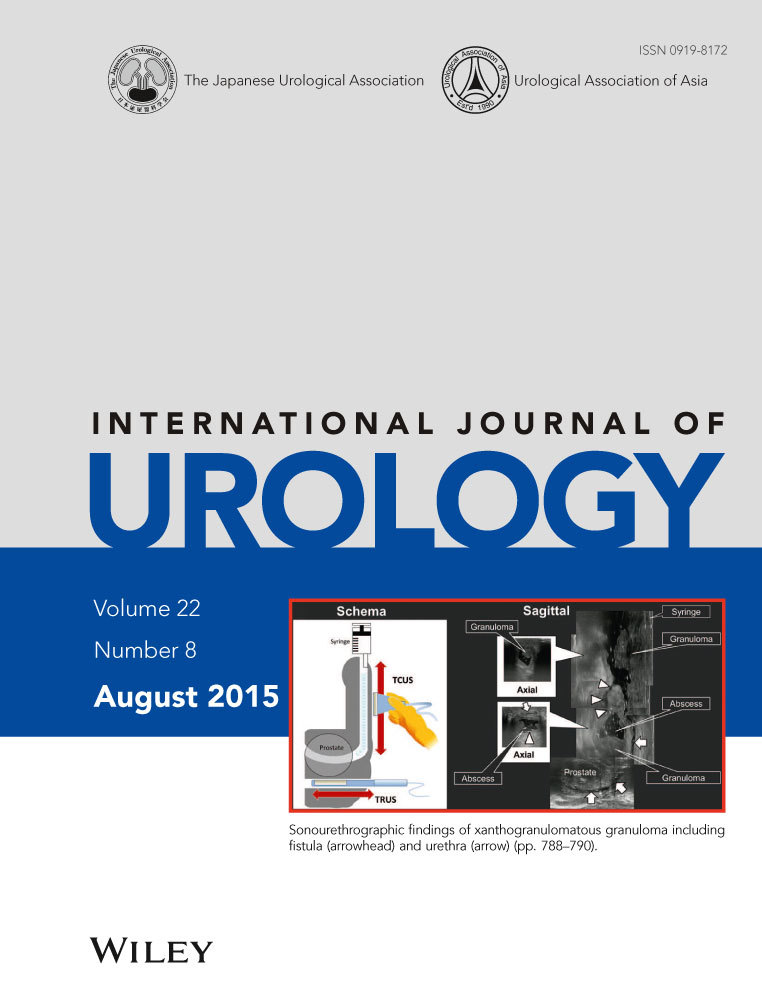Possible effect of lysophosphatidic acid on cell proliferation and involvement of lysophosphatidic acid and lysophosphatidic acid receptors in mechanical stretch-induced mitogen-activated protein kinase
Abstract
Objectives
To determine whether lysophosphatidic acid activates the mitogen-activated protein kinase and increases DNA synthesis in human bladder smooth muscle cells, and to examine the involvement of lysophosphatidic acid and lysophosphatidic acid receptor in mechanical stretch-induced mitogen-activated protein kinase activation in cultured human bladder smooth muscle cells.
Methods
TaqMan reverse transcription polymerase chain reaction was used to determine the mRNA expression levels of six lysophosphatidic acid receptor subtypes. Mitogen-activated protein kinase activity enhanced by either lysophosphatidic acid or mechanical stretch was measured by western blotting. The effect of lysophosphatidic acid on DNA synthesis was assessed by 5-bromo-2’-deoxy-uridine incorporation assay.
Results
Lysophosphatidic acid 1 subtype mRNA was predominantly expressed (96%). Lysophosphatidic acid activated the mitogen-activated protein kinase in a concentration-dependent manner. C-jun NH2-terminal kinase showed the highest activity among the three subsets of the mitogen-activated protein kinase family members (c-jun NH2-terminal kinase, extracellular signal-regulated kinases, p38). Lysophosphatidic acid also increased incorporation of 5-bromo-2’-deoxy-uridine. These responses were suppressed by Ki16425 (lysophosphatidic acid receptor antagonist). Mechanical stretch mainly induced c-jun NH2-terminal kinase activation. This activation was partially inhibited by Ki16425.
Conclusions
Lysophosphatidic acid might activate the c-jun NH2-terminal kinase component of the mitogen-activated protein kinase family and DNA synthesis through lysophosphatidic acid receptors (presumably, through lysophosphatidic acid 1) in human bladder smooth muscle cells. The present study also implicates the involvement of lysophosphatidic acid and lysophosphatidic acid receptors in mechanical stretch-induced c-jun NH2-terminal kinase activation. Lysophosphatidic acid receptor can be partially activated by mechanical stretching through lysophosphatidic acid-dependent or independent mechanism.




